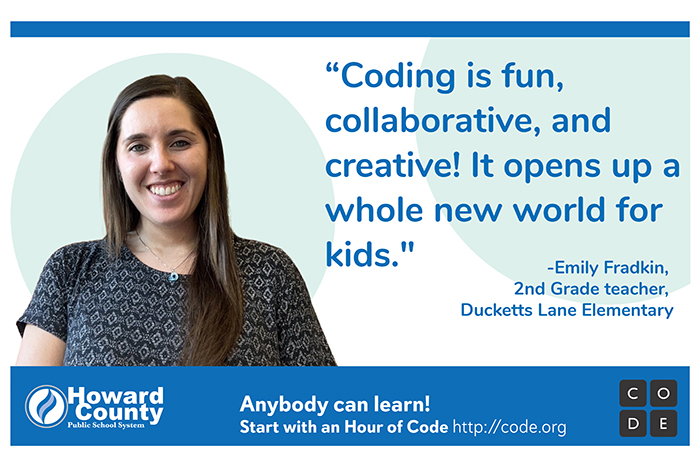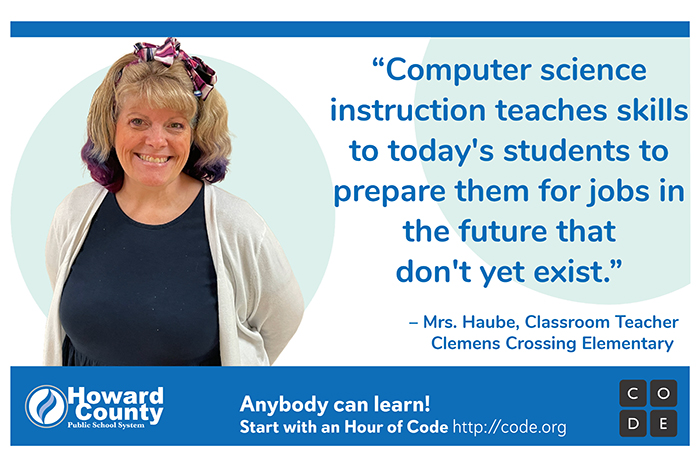HCPSS Provides Multiple Opportunities for Students to Explore Computer Science
December 5th, 2023
HCPSS students are exposed to computer science in various contexts throughout their educational careers. In addition to offering several technology-related courses, HCPSS participates in the annual Hour of Code, during which students around the world engage in computer science and coding activities. This year, the Hour of Code will take place Dec. 4-10, which coincides with Computer Science Education Week. HCPSS students will have the opportunity to take part in discussions about the Hour of Code and why participation is important; learn and understand new coding vocabulary words; online coding activities, and offline coding activities like robotics and classroom work. Activities will vary by school.
All students in grades K-5 receive instruction on Computational Thinking and Coding from technology teachers throughout the second and third quarters. Students use robots and software to code a dance video, designing a trash collecting robot, or to build a maze game. These units help to build students’ capacity with computational thinking and encourage students to explore computer science opportunities both in and out of school.
Students in middle school engage in a Technology Education course in 6th grade, which focuses on computational thinking and the engineering design process. They have an opportunity to continue studying these subjects by taking either Foundations of Technology or Exploring Computer Science for high school credit to meet their Computer Science, Engineering or Technology (CSET) graduation requirement.
At the high school level, students have many opportunities to study computer science in depth. This includes two Career and Technical Education (CTE) academies—the Computer Programming Academy and the new Computer Science Academy—that are available at students’ home schools. Additionally, students may participate in the CTE Cybersecurity Networking Academy at the Applications and Research Laboratory. They also can choose Exploring Computer Science Honors or AP Computer Science Principles as their CSET credit.
In addition to exposing students to computer science, HCPSS aims to help students make connections to other subjects they are studying. To that end, elementary technology teachers will, for the first time, incorporate literature into their computational units.
As HCPSS’ Coordinator of Instructional Technology Julie Wray explains, “Literature often explores diverse perspectives and cultures. By incorporating these elements into coding lessons, teachers can promote diversity and inclusion in the classroom and expose students to a variety of stories and experiences.”
At the same time, Wray says, integrating literature and coding allows students to make connections between in and outside the classroom.
“Bringing literature into coding provides real-world contexts and scenarios that students can relate to. It allows students to see the practical applications of coding skills in solving problems and creating solutions, making the learning more meaningful.”
Earlier this year, twenty-nine HCPSS elementary schools were recognized for their commitment to teaching computer science. Additional information on the HCPSS CTE program can be found online.
 HCPSS
HCPSS
